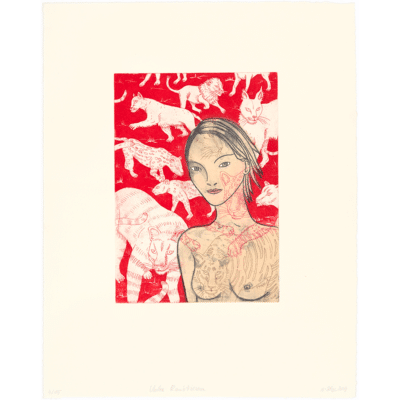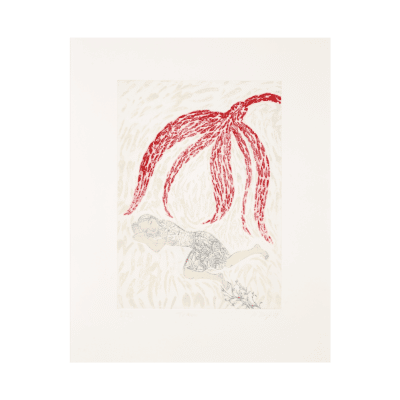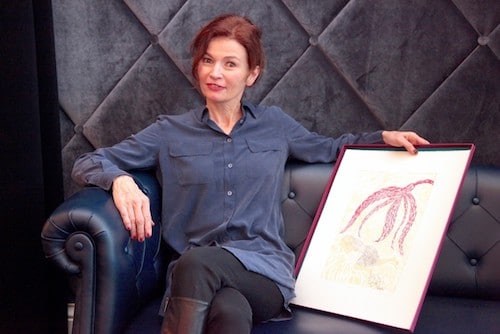Anna Stangl
Unter Raubtieren, 2024Artwork by Anna Stangl for art in print
Anna Stangl
1961 // born in Salzburg, lives and works in Vienna
// degree course in painting at the Academy of Fine Arts in Vienna and the School of Fine Arts in Paris
// international scholarships, workshops and teaching assignments in Japan, China, India, Turkey, Kazakhstan and Kyrgyzstan, Paris, Rome and Budapest; tutor at the summer academy in Marburg
2002 // Margret Bilger Award
// travels to Asia, North and South America, Australia, Melanesia
Selection of exhibitions
2018 // , Galerie Wolfrum, Vienna
2017 // Galerie 422, with Irene Andessner, F. Maderthaner and V. Dirnhofer
2016 // , Kunstverein Taunus, Bad Soden, Germany
„The Capricious Line“, Galerie Gerersdorfer, Wien
People are at the heart of my work. The human body is a medium that I can use to express something, because it’s easiest for me to approach something different and less tangible using something that I know really well and can feel. For example, when I depict various physical states, such as running, floating or lying down, I try to also draw on the material and the unambiguous to express moods, thoughts, emotions and abstract concepts including fear, freedom, sometimes tenderness and love, as well as loneliness, break-ups and disappearance.
In doing so, I deal a lot with dreams, the unconscious, memory, fairy tales in order to address the topics I’m interested in. I deal with questions like how can we maintain the balance between the known, the tamed and the wild, the mysterious and the uncontrollable? On the basis of extremely subjective experiences, I try to find a form that is also useful and meaningful for other people and can be understood. Anna Stangl 1995
About the artist
Anna Stangl works in a poetically figurative way, primarily with drawings. At the centre of her work is the human, predominantly female body, as well as plants and strange animals. From her works there emerges a strange, slightly disturbing, toxically beautiful world of insinuations, spirit disorientation and unexplained threats.
Two qualities stand out quickly and clearly in Anna Stangl’s pieces, and demand to be named as the cause of the desire to be considered. First of all, these pieces show a certain tenderness towards their subjects: a technical quality that is expressed in the fine line management and the childishly sensual spidery contouring, for example. And secondly, there is a very characteristic type of charming humour that forms the striking quality of these pieces: it can be seen in the poses of the figures or in the scenes depicted, for example the peculiar relationships that human beings have with animals. (Robert Pfaller, Wiener Zeitung, 2018 )



